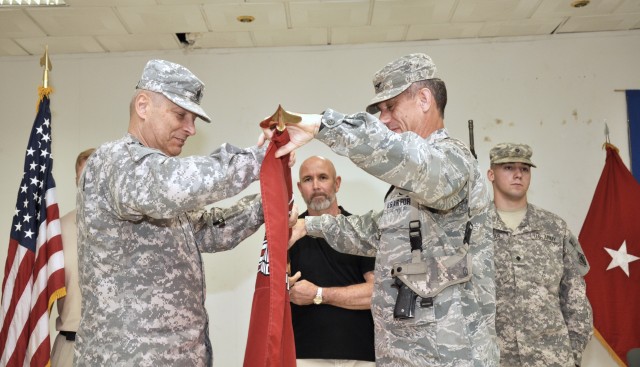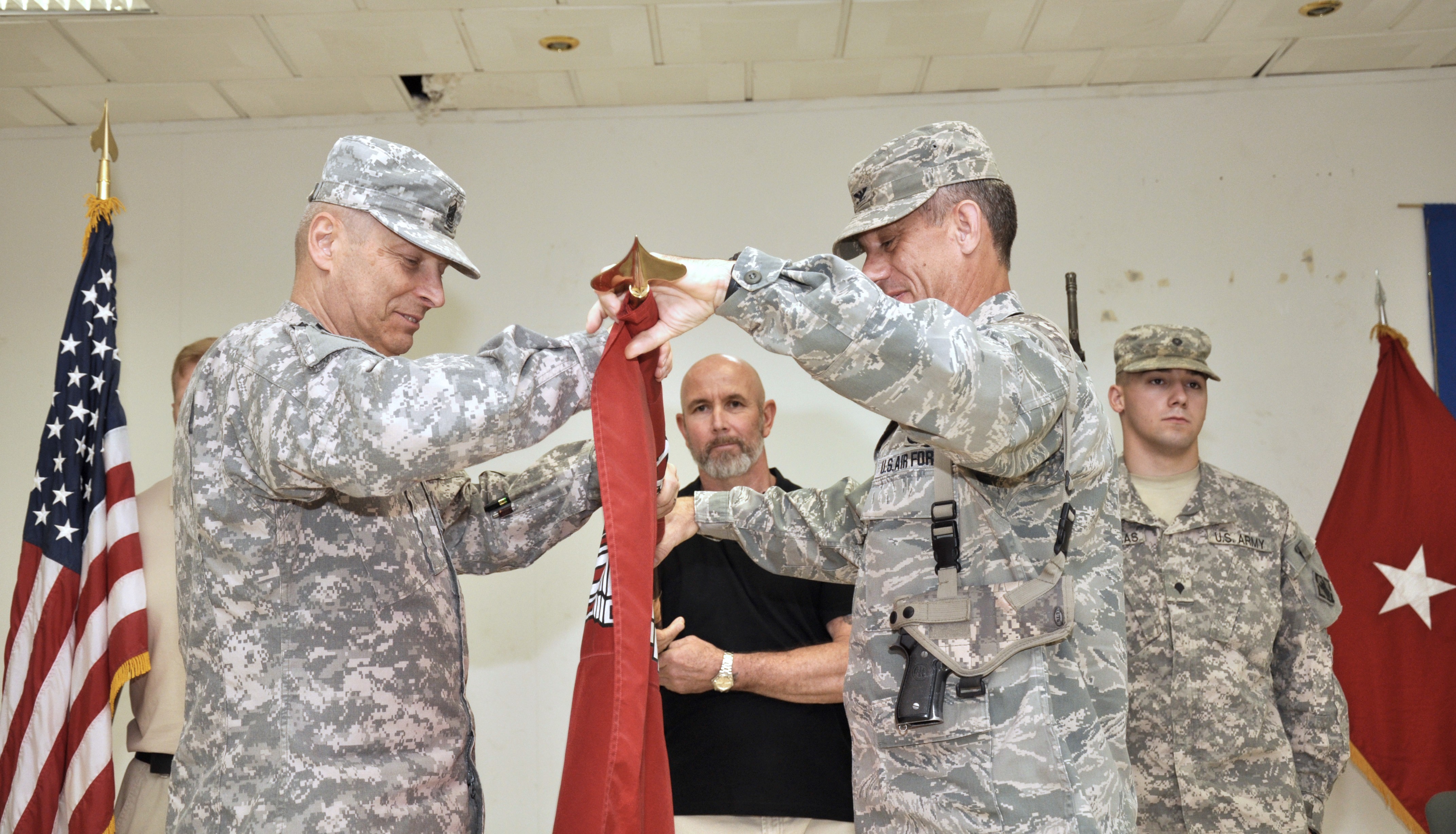ALI BASE, Iraq (Arpril 3, 2010) -- The U. S. Army Corps of Engineers Transatlantic Division completed its final transformation from three engineer districts in Iraq to one by casing the Gulf Region South District's colors during a discontinuation ceremony, March 29 in Tallil, Iraq.
Brig. Gen. Kendall Cox, Transatlantic Division commander, said the ceremony means success and the conclusion of the mission for Gulf Region South, more commonly referred to as GRS.
"Simply put, it means success, amazing success here in the south, specifically throughout the GRS area of responsibility," said Cox. "Today's ceremony marked the conclusion of the mission for the GRS Headquarters, but in no way ends their mission in support to the nation of Iraq, the U.S. and Iraqi security forces, but most importantly for the people of the nine provinces here in southern Iraq."
Cox told the audience that GRS completed what he considered to be a monstrous program, led by tremendous leaders and accomplished by a superior workforce. The district completed more than 1,300 projects valued at $4 billion over the last six years, and today has an additional 116 projects under construction valued at $528 million with more than $900 million to be completed over the next 12 to 15 months.
But according to Col. Jeffry Knippel, commander of the Gulf Region South District, the ceremony also marks a milestone that signifies success.
"GRS was created because of a great need to provide hope and stability for the Iraqi people, a need so large that from the U.S. Army Corps of Engineers perspective it was determined that three engineering districts were needed to manage its overall execution," he said.
Knippel added that the creation of the districts was a monumental task in its own right. "The provision of facilities and infrastructure to ensure the self-sufficiency and security of Iraq's new democratic government and its people framed the parameters of the GRS mission," he said.
He said that for more than six years, GRS people tenaciously labored to provide military, police, judicial, water, power, sewer, medical and educational facilities across southern Iraq in order to promote self-sufficiency and security.
"New army bases and training camps to care for the Iraqi army, multiple courthouses to process the rule of law, hundreds of units to provide clean drinking water, refurbished power plants to provide whole cities electricity, complete city sewer systems and treatment plants to remove the breeding grounds of disease, major hospitals including a state-of-the-art children's hospital to care for the Iraqi's sick, and scores of elementary and vocational schools to educate the Iraqi people -- these are but a few of the fruits of GRS' labor that dot the Iraqi landscape," he explained.
Knippel also gave credit for GRS' success to the many contractors whose support for security, life support, and technical services were invaluable to accomplishing the mission.
"It must be specifically noted that it wouldn't have been possible without the 130 Iraqi engineers and construction representatives, almost two-thirds of the GRS total technical staff, whose contributions alone deserve celebration," he added.
With the inactivation of the Gulf Region South District, the Corps of Engineers will have one remaining district in Iraq to finish the reconstruction mission. The Gulf Region District is headquartered in Baghdad, under the command of Col. Dionysios Anninos.
"The Corps made history while others are writing about it," said Anninos. "Today is yet another event for others to write about while we collectively shape the future of Iraq," he said.
"Just nine months, ago there were three district headquarters and a division headquarters in Iraq. Today there is one district headquarters in Iraq. Despite these changes, as we execute our responsible drawdown plan, we continue to deliver quality facilities and services to the citizens of Iraq and continue to develop their construction and architecture industry," he said. "Today we are coming together, sharing together, working together and we will succeed together."
The Gulf Region District is under the command and control of the newly established Transatlantic Division, headquartered in Winchester, Va. The new division unifies all Corps of Engineers programs in the U.S. Central Command operations area - 20 countries from Egypt through the Arabian Gulf to Central Asia - and includes two districts in Afghanistan.


Social Sharing